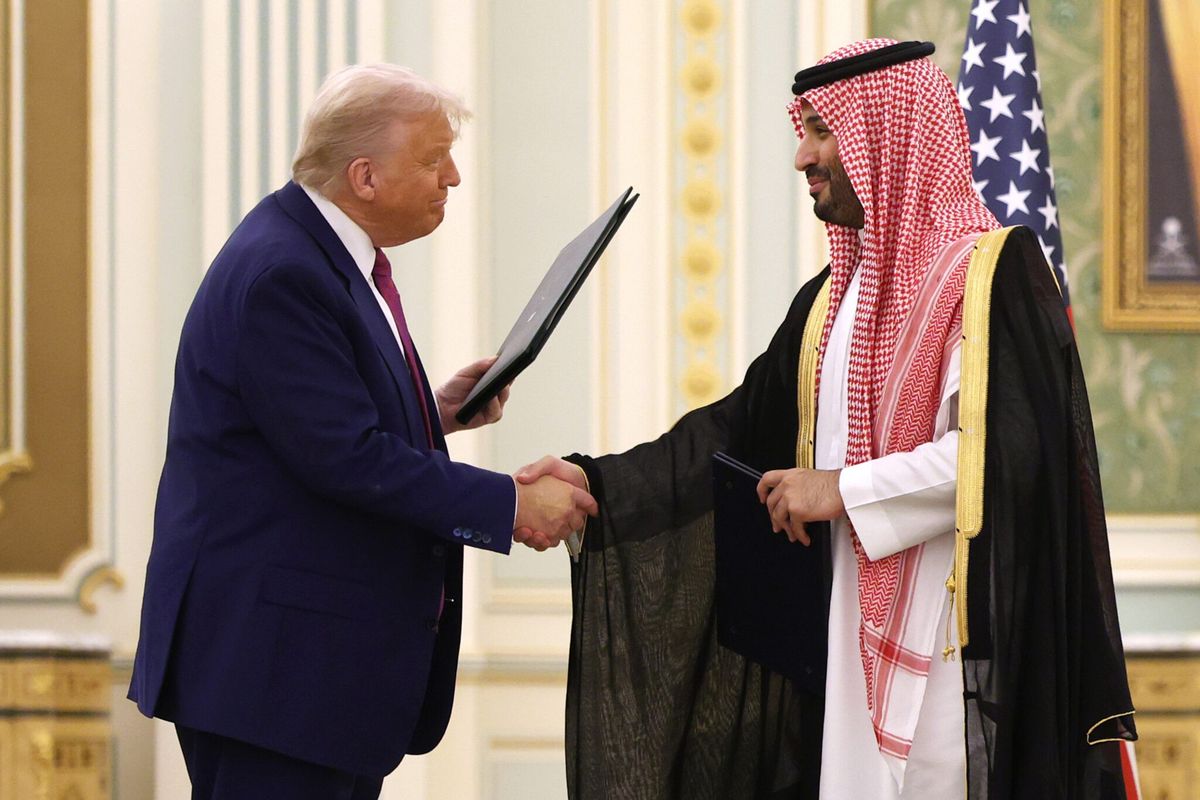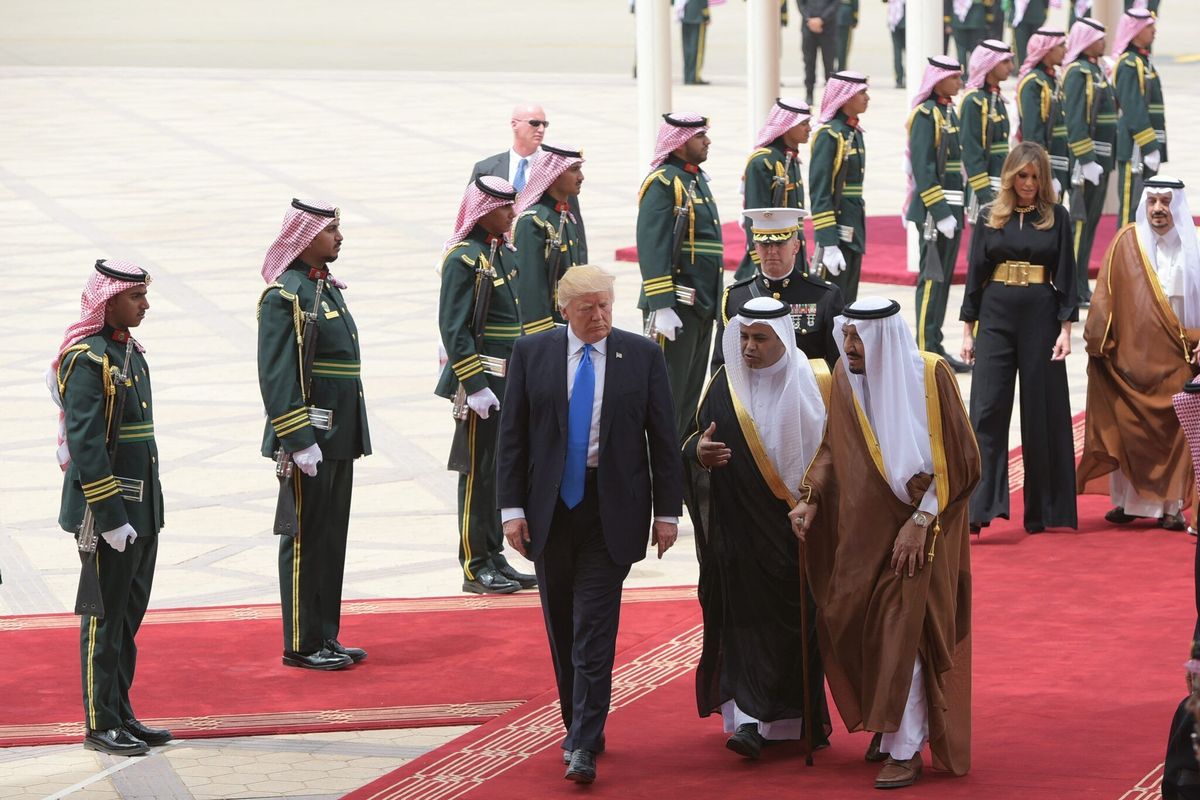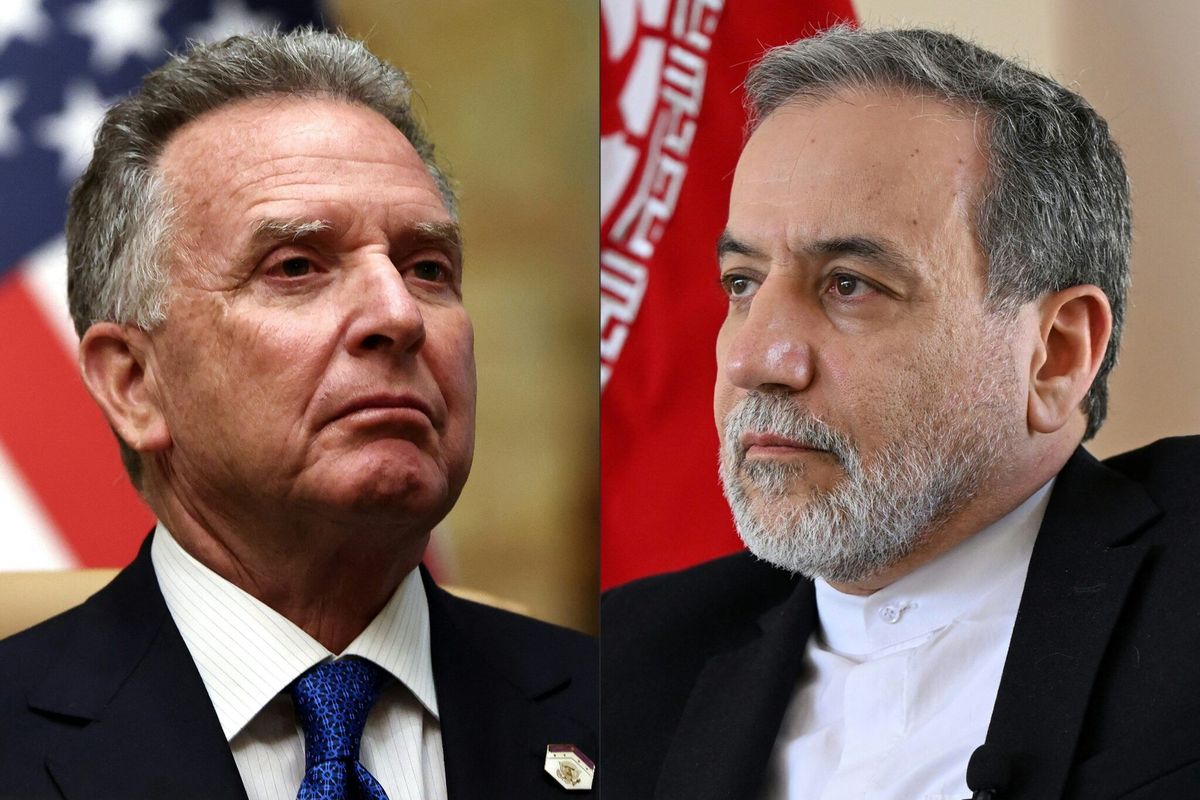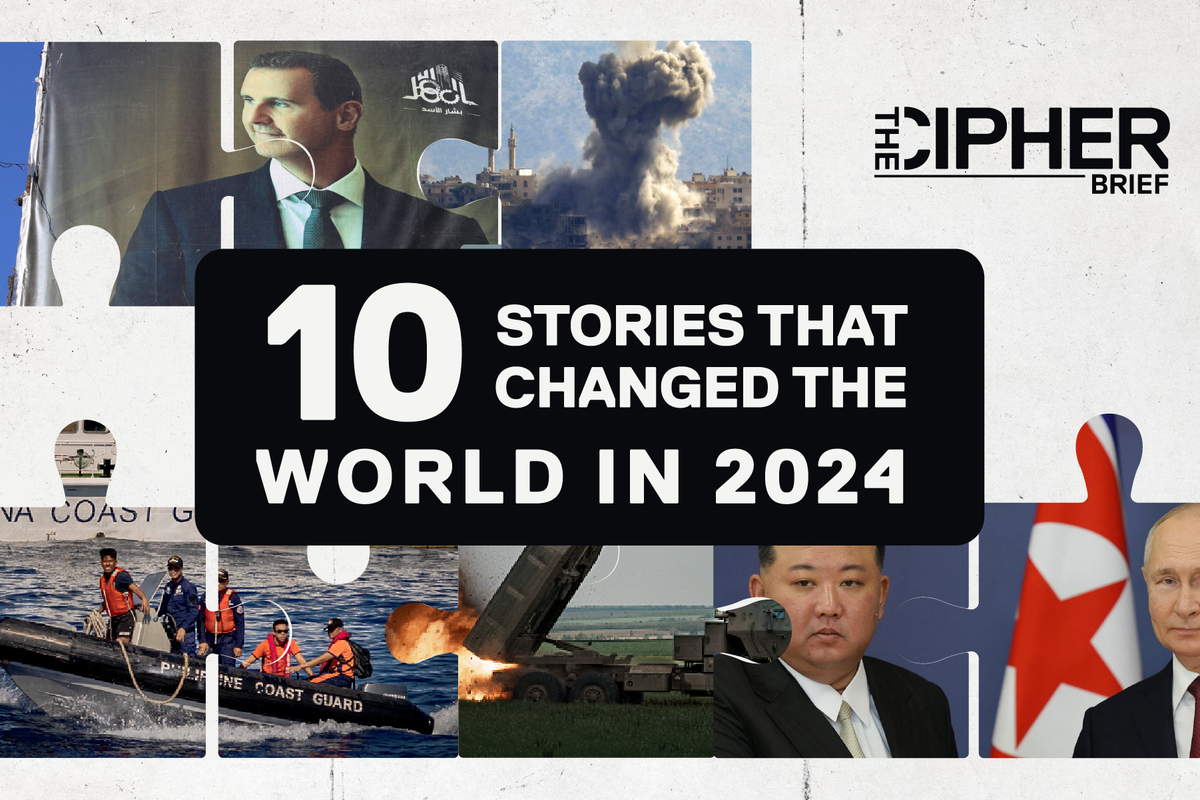SUBSCRIBER+ EXCLUSIVE REPORTING - Nearly every week, politicians and headline writers tell the world that a ceasefire in Gaza is at hand. A new deal will bring a halt to the fighting, more humanitarian aid and the release of hostages. And within days, the promised deal collapses. As for a longer-term truce, the two sides are facing off across a seemingly unbridgeable gap, agreeing only that they cannot agree to each other’s conditions.
"We will not relent until we achieve total victory over our enemies," Israeli Prime Minister Benjamin Netanyahu said recently, repeating what has become a mantra since the war began in October. Any pause in the fighting, Netanyahu insists, must be temporary.
“It’s wishful thinking,” Hamas spokesman Basem Naim told Britain’s Sky News from Istanbul last week, when asked about reports that Israel and Hamas were near an agreement. “There are still gaps between what we are calling for, what we are demanding, and what is proposed from the other parties," he added. Other Hamas representatives have been clear for weeks: they want a permanent ceasefire before they’ll release any more hostages.
The positions are consistent, unambiguous, and they raise a fundamental question about the Gaza war: Can a peace deal be cut while Netanyahu leads Israel and Yahya Sinwar, Mohammad Deif and other top Hamas leaders still have control?
“That seems unlikely,” Dan Perry, a prominent centrist commentator and former Middle East bureau chief for the Associated Press, told The Cipher Brief. Netanyahu, Perry says, needs a decisive victory to overcome a raft of political problems, and he must cater to extreme nationalists in his government who want no concessions made to Hamas.
“If he said yes (to concessions),” Perry said, Netanyahu “would lose the right wing and that would in theory bring down his government.”
The core of the problem is that the hardline positions each side has staked out are existential. Hamas leaders must show that they can “win” a ceasefire, the promise of a Palestinian state and the freedom of large numbers of Palestinians from Israeli jails – and of course they want to save their own lives. And Netanyahu must do nothing to suggest weakness to his far-right-wing partners in government.
“Unlikely,” Mick Mulroy, a former undersecretary of defense for the Middle East, said of the chances for peace with Netanyahu at the helm and Hamas leaders at large. “Netanyahu has said there will be no ceasefire until Hamas has been destroyed militarily,” Mulroy added. “That will not happen until Sinwar is killed or captured, his senior leadership is as well, Hamas weapons - especially rockets - are destroyed and the tunnels eliminated.”
Netanyahu’s problems
From the beginning, Netanyahu has promised “total victory,” an ill-defined endgame that appears to include the return of the hostages, the elimination of Hamas as a military and political force in Gaza, and the death or capture of a long list of its top leaders—including Deif and Sinwar.
Beyond the challenge of achieving those war aims, Netanyahu faces a long list of domestic political troubles that many believe make negotiations difficult.
Surveys since the war began have consistently shown that Netanyahu is a deeply unpopular leader. A February poll by Israel’s Channel 12 television showed that opposition parties could take 75 of the Knesset’s 120 seats in an election, while the bloc loyal to Netanyahu would hold just 45 seats. Opposition figures, past leaders and a majority of the population have pilloried him for allowing the October 7 attack to happen on his watch, and before the war began, he faced charges in a series of long-running corruption trials. Once those proceedings resume, Netanyahu could face jail time if he's convicted.
All of that means that politically, Netanyahu needs a “win” of some kind in the Gaza war. It's a high bar given the goals he has laid out.
More immediately, Netanyahu’s leadership depends on his far-right coalition partners, Itamar Ben-Gvir and the Jewish Power party, and Bezalel Smotrich and his Religious Zionism party, both of whom oppose any ceasefires and have called for the Israeli Defense Forces to take over Gaza and reincorporate it into Israel. That makes it politically dangerous for Netanyahu to be seen as caving in - even in small ways - to Hamas or outside negotiators.
Netanyahu reads the polls and believes his hard-line stand on the war is popular, an unidentified government minister told Haaretz recently. ”He knows that a majority of the Israeli public still believes in total victory over Hamas. He's sticking faithfully to the public's sentiment on that," the minister said. "His problem is that he refuses to read something else that's clear from the polls: that the public doesn't want to hear from him any longer...Any remaining trust in him has been fundamentally broken since October 7, and he can't fix that."
Some political figures aren’t waiting for the war to end to blast the Prime Minister publicly.
Last week, former Israeli Prime Minister Ehud Olmert accused Netanyahu and his government of driving Israel toward an “all-out war" that would spill beyond the Gaza Strip. In a podcast posted by Haaretz, Olmert called Netanyahu’s right-wing allies a “bunch of messianic hallucinators” who were planning beyond the Gaza war for an “Armageddon that will make it possible to expel many of the Palestinians in the West Bank.”
In a separate op-ed, Olmert said “the ultimate aim of this gang is ‘purging’ the West Bank of its Palestinian inhabitants, cleansing the Temple Mount of its Muslim worshippers and annexing the territories to the state of Israel.”
“Actual peace will come over time,” Matt Levitt, director of the Reinhard Program on Counterterrorism and Intelligence at the Washington Institute for Near East Policy, told The Cipher Brief. But he added, “I anticipate Israeli elections before then.” Meaning: No peace while Netanyahu is in charge.
For Hamas, existential questions
The leaders of Hamas in Gaza are of course in an utterly different position. Sinwar and Deif are reportedly hiding in tunnels beneath the enclave, and for them, the hostages and what’s left of their military arsenal are the only cards they hold.
Since the deadly October 7 attack that the two men planned and helped execute, Israel has exacted a unrelenting revenge. More than 30,000 Palestinians have reportedly been killed, and vast swathes of Gaza have been reduced to rubble. The United Nations warned last week that more than half a million Gazans are on the brink of starvation. Sinwar and Deif have lost family members and top lieutenants and, by Israeli estimates, more than 10,000 Hamas fighters.
For all the sacrifice, Hamas is no closer to its goals of evicting Israel from the Middle East and ruling a Palestinian state that would stretch from the Jordan River to the Mediterranean Sea. That leaves the group with little to show for the death and destruction visited on its own people.
There have also been stirrings of opposition to Hamas in a territory it once tightly controlled, with reports of Gazans rallying to call for a ceasefire and an end the violence.
But any long-term peace plan will almost certainly come with the condition that these Hamas figures - hands-on architects of the October 7 massacre - be brought to justice. And Israel’s vow to kill the two men may also make Sinwar and Deif wary of any offers of safe passage out of Gaza. All this suggests that Hamas and its leaders won’t agree to any deals that don’t include guarantees for their own safety, and the release of large numbers of Palestinian prisoners held in Israel. Absent these they will likely continue to hold their hostages and keep fighting.
Looking for a breakthrough
What could break the logjam? The death of either Deif or Sinwar would give Netanyahu some ability to claim, if not “mission accomplished,” at least a moment of retribution for the crimes of October 7.
On the global stage, many world leaders have urged the U.S. to be more forceful in using its leverage as Israel’s foremost supporter to force a diplomatic breakthrough.
The problems with this are twofold: It can be politically perilous for American leaders to pressure their Israeli counterparts; and perhaps more important, thus far there have been no signs that pressure from the White House has had any constructive effect on Netanyahu and his government.
Might that change? NBC News reported last month that Biden has said privately that Netanyahu is “giving him hell,” according to White House insiders who asked not to be named. The report said Biden has been disparaging Netanyahu with “a candor that has surprised some of those on the receiving end of his comments,” including the use of vulgar language to describe the Israeli Prime Minister.
Whether that suggests an approaching tipping point at which the White House might impose actual penalties against the Israelis - and not just strong warnings - isn’t clear.
Lastly, political change in Israel might alter the dynamic. Elections in Israel aren’t scheduled until October 2026, but they could come much sooner if Netanyahu’s fragile coalition comes undone. That could open a path to compromise on the Israeli side, but even if all of the current leaders left the scene tomorrow, a “real peace deal” is “some ways off,” said Jon B. Alterman, director of the Middle East program at the Center for Strategic and International Studies.
“I could see the beginning of progress toward a deal with any or all of them still in place, but I expect such progress to be slow, episodic, reversible, and partial,” Alterman said in an email to The Cipher Brief.
Some in Israel believe that a key tenet of the global diplomatic efforts - a pathway to statehood for the Palestinians - will make a comprehensive peace deal difficult for any Israeli leaders.
“Any leader will have to fight Hamas to the bitter end if he wants the public’s support,” Eitan Shamir, director of the Begin-Sadat Center for Strategic Studies at Israel’s Bar Ilan University, told The Cipher Brief.
“Israelis are scared of a Palestinian state,” Perry said, because they fear what might follow a complete Israeli withdrawal from the West Bank. “They see what happened in Gaza,” Perry said, and worry about Palestinian threats that might come from any new state.
And that, says Hans Jakob Schindler, a former German diplomat and director of the Counter Extremism Project, a Berlin-based think tank, means that absent unforeseen events, the likeliest outcome may be a return to the way things were before the terrorists killed nearly 1,200 Israelis and foreigners on October 7.
“A large part of the Israeli government is comfortable with reconstituting the 6th of October, with a bigger fence around Gaza and letting them simmer there,” said Schindler.
Read more expert-driven national security insights, perspective and analysis in The Cipher Brief














